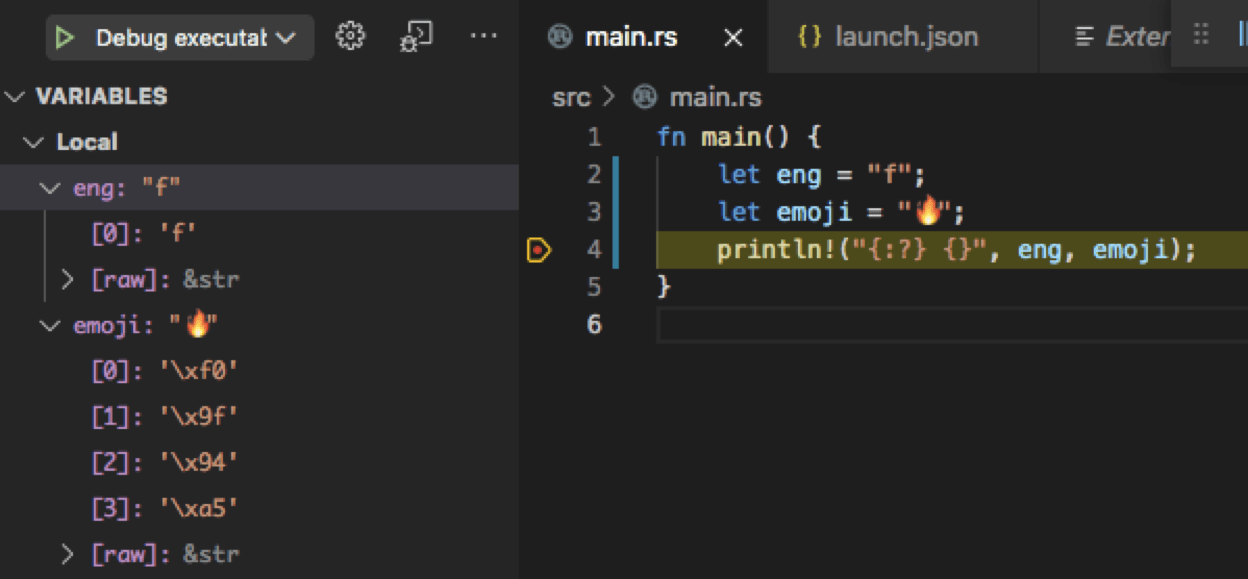Let contents = fs::read_to_string (file_path).expect ( should have been able to read the file ); I then iterate over each line: However, string_slice is now of type &&str (two &s). Reading a file with a buffer. Web 1 answer sorted by:
Using this function avoids having to create a variable first and provides more type safety since you can only get the buffer out if there were no errors. Reading the file as a string. This is a convenience function for read::read_to_string. ( in file {}, file_path); However, string_slice is now of type &&str (two &s).
Using this function avoids having to create a variable first and provides more type safety since you can only get the buffer out if there were no errors. ( with text:\n {contents} ); 3 the issue is that file::open () returns a std::result::result<std::fs::<strong>file</strong>, std::io::error> which needs to be unwrapped in some way in order to access the file. Read the entire contents of a file into a string. Specifically, you’ll learn how to read a json file, a yaml file, and a toml file in the rust programming language.
I now need only a slice of that so i: Read the entire contents of a file into a string. Reading a file with a buffer. ( in file {}, file_path); Specifically, you’ll learn how to read a json file, a yaml file, and a toml file in the rust programming language. For item in file.lines() { // processing } at this point item is of type &str. Let contents = fs::read_to_string (file_path).expect ( should have been able to read the file ); 3 the issue is that file::open () returns a std::result::result<std::fs::<strong>file</strong>, std::io::error> which needs to be unwrapped in some way in order to access the file. } is this the right, idiomatic and efficient way in rust? This is a convenience function for read::read_to_string. For line in read_to_string (filename).unwrap ().lines () { result.push (line.to_string ()) } result } Using this function avoids having to create a variable first and provides more type safety since you can only get the buffer out if there were no errors. Web read all bytes from a reader into a new string. Web i use rust to open a file and parse its contents. This might be a reasonable first attempt for a beginner's first implementation for reading lines from a file.
Web 632 5 18 Strictly Speaking, Result<&'A Str> Wouldn't Often Be A Usable Return Type For This Problem, Because It Implies The &'A Str Is A Reference To A Part Of The Struct That Is Being Called On (Since You Can't Return A Reference To Something Created In A Function).
3 the issue is that file::open () returns a std::result::result<std::fs::<strong>file</strong>, std::io::error> which needs to be unwrapped in some way in order to access the file. Web 1 answer sorted by: Web i use rust to open a file and parse its contents. For item in file.lines() { // processing } at this point item is of type &str.
Read The Entire Contents Of A File Into A String.
Reading the file as a string. Using this function avoids having to create a variable first and provides more type safety since you can only get the buffer out if there were no errors. } is this the right, idiomatic and efficient way in rust? For line in read_to_string (filename).unwrap ().lines () { result.push (line.to_string ()) } result }
Reading A File With A Buffer.
This is a convenience function for read::read_to_string. Web read all bytes from a reader into a new string. ( with text:\n {contents} ); This is a convenience function for using file::open and read_to_string with fewer imports and without an intermediate variable.
The Way I Prefer To Do This Is To Use Expect () Like This:
Let mut file = bufferedreader::new (file::open (&path)); Asref < path >> (path: Reading the file as a vector. ( in file {}, file_path);









